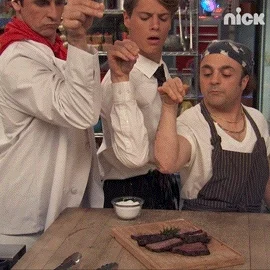Ah, thank you! Makes sense.
It has a fairly robust natural (?) fish population that we see when we go by and feed them or see the occasional fisherman. Also some turtles, frogs, and very popular with ducks and geese. It’s a great local feature.
Ah, thank you! Makes sense.
It has a fairly robust natural (?) fish population that we see when we go by and feed them or see the occasional fisherman. Also some turtles, frogs, and very popular with ducks and geese. It’s a great local feature.
It’s not that easy. Many rules changes require a majority of homeowners to affirm, and if HOAs are anything like mine, simply getting a quorum is damn near impossible.
If I lived in your community I’d consider this a good thing.
Sounds like this was done the right way. Hopefully, the maintenance won’t be too difficult. I grew up in an area of NJ with neighborhoods near natural lakes that were drying up. Not long ago, there were a lot of condos for sale in a PA area that mentioned a lake, so my sense of nostalgia led me to check out a few listings. Then this story of a lake, condos, and HOAs/COAs made me back away:
We had a group attempt this, only to discover rules against contacting board members and very tight timeframes for complaints effectively shut it down.
I agree. In the 4 years I’ve owned the condo the HOA fees have risen by almost 30%. it’s a relatively small complex with less than 50 units so the costs are proportionately high for all the owners and since the building is approaching 50 years old, a lot of big ticket repairs are in the works. I’ve been to the HOA meetings and review the budget every year and I think they’re trying to avoid big special assessments by having a rather large contingency account. It’s a rather unique property in a downtown location so it has a lot of special needs that you don’t find in a typical suburban subdivision.
The long time residents like to think of the place as “upscale” when in reality, that stopped being the case probably 20 years ago as newer places with attractive amenities have been built nearby in recent years. A big concern I have is if I go to sell that the excessive HOA fees will scare off potential buyers. I hate having to charge such high rent to my tenants as well but I’m pretty much forced to in order to cover my costs.
It is a good thing for the permanent residents but as a landlord looking to maximize my investment, I’m probably losing out on $20-30k of potential profits every year. It’s a 3 bedroom condo in a downtown location…I could probably get $300/night by going short term.
That’s because Canada geese DGAF about anything.

A couple of strategies might be to find as many tax breaks as possible for now (saw one in the past on HELOCs, but searching on my phone isn’t working well). Also consider marketing to other owners or commercial buyers. While checking out tax records, I was surprised to learn how many owners have have multiple units. Someone who owns below the maximum number allowed might want your unit. The benefit there is dealing with a buyer familiar with the association.
Oh I know how it works. I just don’t think privatizing government is a good idea.
The thing about unaccountable power structures is that they work until they don’t. There are good HOAs out there, but they are all only one “election” or one contract with Associa away from hell. That’s why we spent a couple thousand years perfecting democracy. The transparency and accountability structures within it are engineered to solve these problems with minimal risk of turning into petty fiefdoms.
With all those popular cooking shows, I can’t believe they’ve never been selected as a challenging ingredient. Besieged HOAs would probably be willing to chip in on prize money for the chef who could make 'em nice and tasty!

Well, they are protected under the Migratory Birds Convention Act, so eating them would be illegal (ish?) ![]()
Yeah, there are a lot of permits and regulations involved. They seem more focused on preventing the numbers of existing geese from increasing by focusing on the nests and eggs. ![]()
As a former board member of another HOA, completely agree.
I joined my local one for two main reasons - #1, they didn’t seem to do much beyond exist, and #2 they had zero Hispanic representation or outreach despite a growing owner base. In my first year as treasurer, I eliminated several wasteful projects that were obvious favor bids and got us hundreds of thousands of dollars. We had such a massive war chest that we ended up completely redoing the exteriors of all 160 homes in the HOA in a combo of siding and brick, upgrading from failing wood and some sort of stucco that we spent tens of thousands a year to maintain. Despite a cost of $1.8 million, total expense to each homeowner was ~$300, which paid for their new (new tech at the time) light/movement detecting LED porchlight and exterior garage light. Still pretty happy about that. We also maintained a nice pool with clubhouse.
The downturn of the economy hurt though. People stopped paying as they lost their jobs, which meant we had to go more and more to the emergency funds until they were gone. Yes, in some cases we had to evict, per the original story, but we did this to people who hadn’t paid in literal years. And almost always the unit was seized by the bank shortly thereafter. That’s a bad loop that’s hard to get out of - no income means taking assets which reduces income which…and so on.
In my state HOAs cannot foreclose regardless of how much they say a homeowner owes. They can only put a lien on the property, which can only kick in once it sells. In practicality, what that means is that, if the owner genuinely is never going to pay their dues, the HOA is better off making a deal to discount the amount of the lien to help the property sell and (hopefully) get a new owner who is more likely to pay the dues. Otherwise, with a mountainous lien, the house will never sell and the owner will never move.
You’re not going to get much sympathy here for that.
If you live in a block of flats etc. there’s probably a management contract for shared infrastructure, but the idea of buying a house, and having some committee telling you what to do in it seems to be one of those US things us poor Europeans aren’t ‘free’ enough to understand.
The thing I never understood about special assessments is… all other homeowners have to budget for those kinds of things years in advance, or else finance them when they come up. The lifetime and annual maintenance costs of systems, amenities, and so on, are not exactly hard to estimate with reasonable accuracy, so why isn’t that something where money gets set aside into a reserve fund over time?
I think this depends on legal requirements or regulations, as well as the policies set by the HOA. Having a balance that is too low means an association would be constantly asking for money. OTOH, a fund that is too large might become a temptation that leads to excessive spending.
They aren’t really a thing in Canada either. They sort of exist in the form of a thing called Strata, which do jobs like shovelling snow in some suburbs or building sewers in rural areas in exchange for a monthly fee. They don’t have anywhere close to the bizarre legal control over peoples’ lives that US HOAs do though.
Maybe I’m the odd one out but I think “temptation to waste savings” is a better problem to have, compared to “being allowed to unexpectedly demand thousands to tens of thousands of dollars from people who are already paying you a monthly fee to maintain their space over time.”
Imagine a demand for the money, asking what happened to the savings, and being told too much of it was spent on other things. ![]() So, they’re still gonna want those thousands on top of what got wasted, because that’s a demand the homeowners cannot easily refuse.
So, they’re still gonna want those thousands on top of what got wasted, because that’s a demand the homeowners cannot easily refuse.
Typically, the association does a reserve study which averages out the costs over the life cycle for things like roof replacement, painting, etc. That generally works, but just one unexpected failure or need for unexpected maintenance before the scheduled time will throw things off. Especially if, say, a tree falls into the roof due to too much rain, causing water damage, etc., 10 years before the schedule replacement. The HOA hasn’t built up the funds yet. Our HOA had to do a very expensive earthquake retrofit, completely tear down and remodel the clubhouse due to mold damage being discovered, and were paying for expensive individual repairs for a roof that decided to fail 13 years in instead of 15. Reasonable accuracy doesn’t help you when things don’t last as expected.
If the HOA is a small building, it’s really hard to raise enough dues to absorb these events. Nobody wants to pay a large increase to replenish the reserves, but they also hate special assessments.